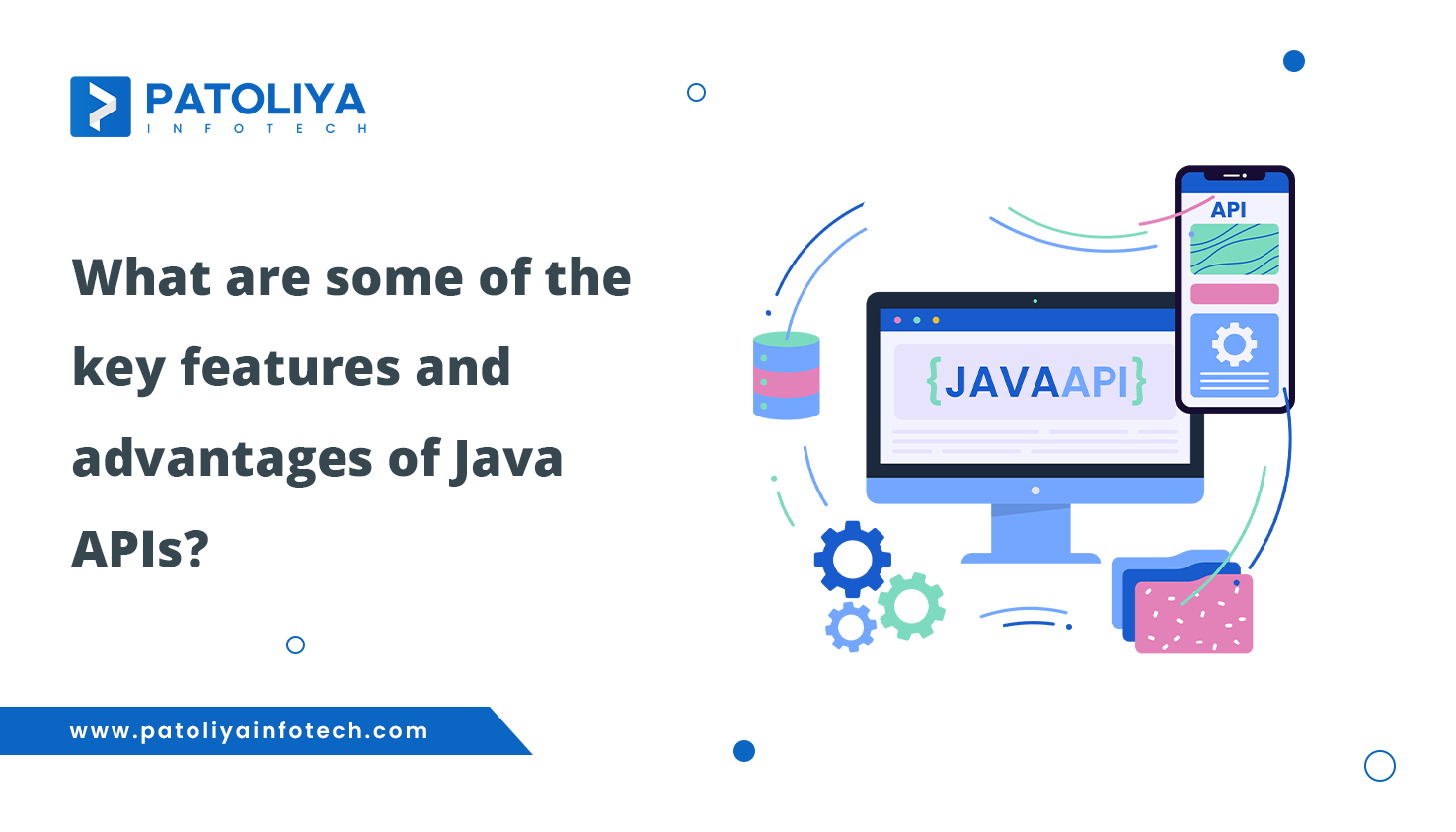Understanding the Differences: .NET vs Java

When it comes to developing enterprise level applications, .net vs java are the two most loved and widely used. Both are robust and scalable, but it’s important to know the important differences between the two when choosing the best technology for your project.
What is .NET?
.NET’s ease of use and developer productivity are among its major advantages. Web services, file I/O, database access, and other common features can be easily added to your application with the help of many pre-built libraries and APIs that connect to the .NET framework and, with capabilities such as automatic memory management and exception handling so, . .NET emphasizes security and reliability.
Stay ahead of the curve! Explore our comprehensive comparison of Wordpress or Ruby on Rails in our latest blog.
What is Java?
Java is commonly used to develop a wide range of applications such as enterprise software, mobile apps, web apps, and scientific apps. The outstanding features are its scalability, portability and flexibility. There’s also a large and vibrant developer community.
Java has several important characteristics, including a simple grammar, strong type checking, and integrated memory management. In addition, Java has a large and extensive standards library that provides a wide range of functionality, including file I/O and interactivity as well as GUI creation and web services
Choosing between Laravel vs. CodeIgniter Which Framework is better for you? Our blog provides a detailed comparison to help you make an informed decision.
Difference between .Net vs Java
Although both Java and .NET framework are robust and scalable technologies, there are a few important differences between the two:
Platform Support:
Although .NET was originally built for Windows and requires a .NET runtime for installation, Java is platform-independent and can work with the JVM on any operating system
Performance:
When it comes to native code and memory management .NET is often faster and more efficient than Java.
Communities and ecosystems:
The development community in Java is large and efficient, and the vast ecosystem of libraries, programs and tools is accessible.
Learning Curve:
Both Java and .NET have long learning curves, while Java’s larger standards library and spoken syntax can make it a bit more challenging to learn.
Cost:
Compared to .NET, which is commercial and requires a license for commercial use, Java is open source and can be used for free.
Not sure which is right for you—Python vs PHP: Choosing the Right Language for Your Project? Our blog provides a side-by-side comparison to help you find your perfect fit.
What are the main performance difference between .net and java?
There are notable performance differences between Java and .NET that can affect the choice of technology for a project. Below is a comprehensive analysis based on several performance metrics:

1. Startup Performance
Compared to Java programs .NET apps tend to start faster. This is mainly due to the ahead-of-time (AOT) compilation feature of the .NET framework, which allows applications to be compiled to native code before execution but because the Java Virtual Machine (JVM) translates bytecode to native code in runtime for this reason, so specific Java applications rely on Just-In-Time (JIT) processes, which can cause delays during startup Although modern Java applications have had much faster startup times , but .NET continues to have a slight advantage in this regard.
2. Memory Usage
.NET’s successful memory management is widely recognized. Because C# and C++ are truly compiled languages, they tend to require less memory than Java. In cases of memory impairment, this efficiency can improve performance. Although Java can manage memory efficiently through garbage collection, it may not always be as efficient as .NET applications.
3. Compute Performance
Both Java and .NET perform similarly on raw compute workloads because each language has compiler optimizations. Both systems use modern processor power and can efficiently use multiple CPU cores. Although the differences are often minor, well-designed C# code can outperform Java in some benchmarks. Depending on the application, choosing one of the two shouldn’t have a significant impact on computer performance.
4. Concurrency and Scalability
Both Java and .NET are designed to support more concurrency and scalability. They support multit-heading and can effectively manage several requests. The powerful Java concurrency mechanism allows programmers to handle complex threading situations more efficiently. Similarly, high-performance applications can benefit from .NET's strong support for asynchronous programming. Both strategies can scale up servers in large applications to better handle the increasing load.
5. Development Speed
When it comes to development speed .NET enables much faster coding due to its large library and reusable features. As a result, coding and debugging takes less time. Java can require more boilerplate code than .NET, which can slow down the development process even though it also offers more libraries.
Expand your understanding of MERN vs. DevOps: Navigating the Path to Software Success. Our blog offers valuable insights and comparisons—check it out now!
Which framework is better for large-scale enterprise applications
Both Java and .NET offer advantages and disadvantages when deciding which framework is best for large-scale enterprise applications. Here is a thorough comparison based on several important enterprise development aspects.

1. Scalability
Both Java and .NET are designed to handle large-scale applications effectively.
- Java: Java, which is renowned for its scalability, is compatible with many different frameworks and libraries that make developing enterprise applications easier. It can effectively handle complex, distributed systems and performs well in contexts that demand flexibility.
- .NET: Provides strong options for scalability as well, enabling both horizontal and vertical expansion. Because of the way in which its architecture facilitates service-oriented designs, it is appropriate for applications that must adjust to shifting business needs.
2. Performance
Performance is an important factor for enterprise applications.
- Java: Its performance is enhanced by the use of Just-In-Time (JIT) compilation and effective trash collection. It might not, however, always be as fast as .NET programs, particularly in situations where high throughput is required.
- .NET: Generally performs better since it uses natively compiled languages, such as C++ and C#. Because of this, it operates more quickly and uses less memory, which makes it a great option for applications that are sensitive to performance.
3. Development Speed and Ease of Use
The speed of development and the ease of use of the framework can significantly impact project timelines.
- Java: Even with its vast documentation and vibrant community, Java can occasionally demand more boilerplate code, which can impede development. Nonetheless, the coding process is streamlined by its extensive ecosystem and object-oriented design.
- .NET: Because of its comprehensive library support and reusable components, .NET is frequently regarded as being more developer-friendly, which speeds up the creation of applications. For enterprise apps, this may result in a faster time to market.
4. Security
Security is paramount in enterprise environments.
- Java: provides a number of security features that are necessary for enterprise applications, including access control and cryptography. Its extensive experience in the field has produced a sophisticated security model.
- .NET: Includes strong security features including automatic code checks and encryption. It is appropriate for sensitive applications because of its integration with Microsoft's security infrastructure, which also improves its security capabilities.
5. Community and Support
The availability of resources and community support can influence the choice of technology.
- Java: has a greater number of developers, which means there are more support resources, libraries, and frameworks accessible. For diagnosing and solving common problems, this can be helpful.
- .NET: Compared to Java, it has a smaller community, but it is expanding quickly, particularly with the emergence of .NET Core, which facilitates cross-platform development. With Microsoft's support, developers have access to a wealth of resources and assistance.
6. Cost Considerations
Cost can be a deciding factor for many enterprises.
- Java: Java can be more affordable because it is open-source, especially for businesses trying to avoid the licensing costs of proprietary software.
- .NET: Even though .NET is becoming more and more open-source, certain of its features could still be expensive, particularly when interfacing with other Microsoft services or goods. Nevertheless, .NET can make sense for businesses who have already made investments in Microsoft technology.
Curious about the key differences between React vs. Vue.js, Which Framework Provides the Best Developer Experience? Our latest blog breaks it down for you. Don’t miss out—read now!
Which framework offers cloud-based applications the best support?
Cloud-based apps are well supported by both Java and .NET, yet there are a few significant distinctions:
.NET and Cloud Computing
- When developing cloud applications on Microsoft's Azure platform, .NET is especially well-suited. Azure's microservices design, scalability, and cloud features are all made available to developers because to the close interaction between .NET and Azure.
- .NET is now an achievable choice for cross-platform cloud development thanks to .NET Core and .NET 5/6. Still, .NET offers the best interoperability and support with Azure.
Java and Cloud Computing
- Many cloud systems, such as AWS, GCP, and Azure, are broadly compatible with Java. Numerous well-developed and implemented Java apps may be found on these cloud providers.
- Java is a popular choice for developing cloud-native applications because of its flexibility and vast ecosystem of libraries and frameworks. Java cloud-based microservices are commonly developed using frameworks such as Spring Boot.
Which is better for software development, .NET or Java?
Java: Because of its platform neutrality, it can operate on any JVM-capable system. It boasts a robust open environment and is extensively utilized in enterprise settings.
Choosing the Right Technology
When choosing between .NET and Java for your project, there are several factors to consider:
- Platform requirements:
Java can be a better option if your application must operate on several different operating systems. Should it be primarily intended for Windows, .NET might be a better fit.
- Performance requirements:
If your application requires high performance and efficiency, especially for native code, .NET may be the better choice.
- Existing skills and resources:
It can make sense to go with Java if your team has greater Java development experience or if there are more Java developers in your area. .NET can be a better option if your team has greater experience with it or if there are more .NET resources accessible.
- Cost:
Since Java is open-source and free to use, it might be the better choice if cost is an important factor.
Website or App: Which Should You Develop First? Read our blog to find out
In the end, Java and .NET are both strong, adaptable technologies that may be utilized to create a variety of applications. The decision between the two will be based on the particular needs of your project as well as the abilities and resources your team has at its disposal.
Conclusion:
Selecting between Java and .NET is a strategic choice that can have a big impact on the outcome of your project; it's not only about the technical aspects. Each platform has advantages and disadvantages, and the optimal option will rely on a number of variables, such as the project's requirements, the team's expertise, and long-term objectives.
Java is a popular choice for large-scale enterprise applications due to its scalability and platform neutrality. However, .NET is frequently complimented for its speed and smooth integration with Microsoft technologies, which can be quite helpful in some circumstances.
Ultimately, utilizing the advantages of both Java and .NET may be the best course of action. The best results are occasionally obtained by combining the two platforms. Developers can use these effective tools to construct scalable, profitable software solutions by carefully considering the advantages and disadvantages and making well-informed decisions.


